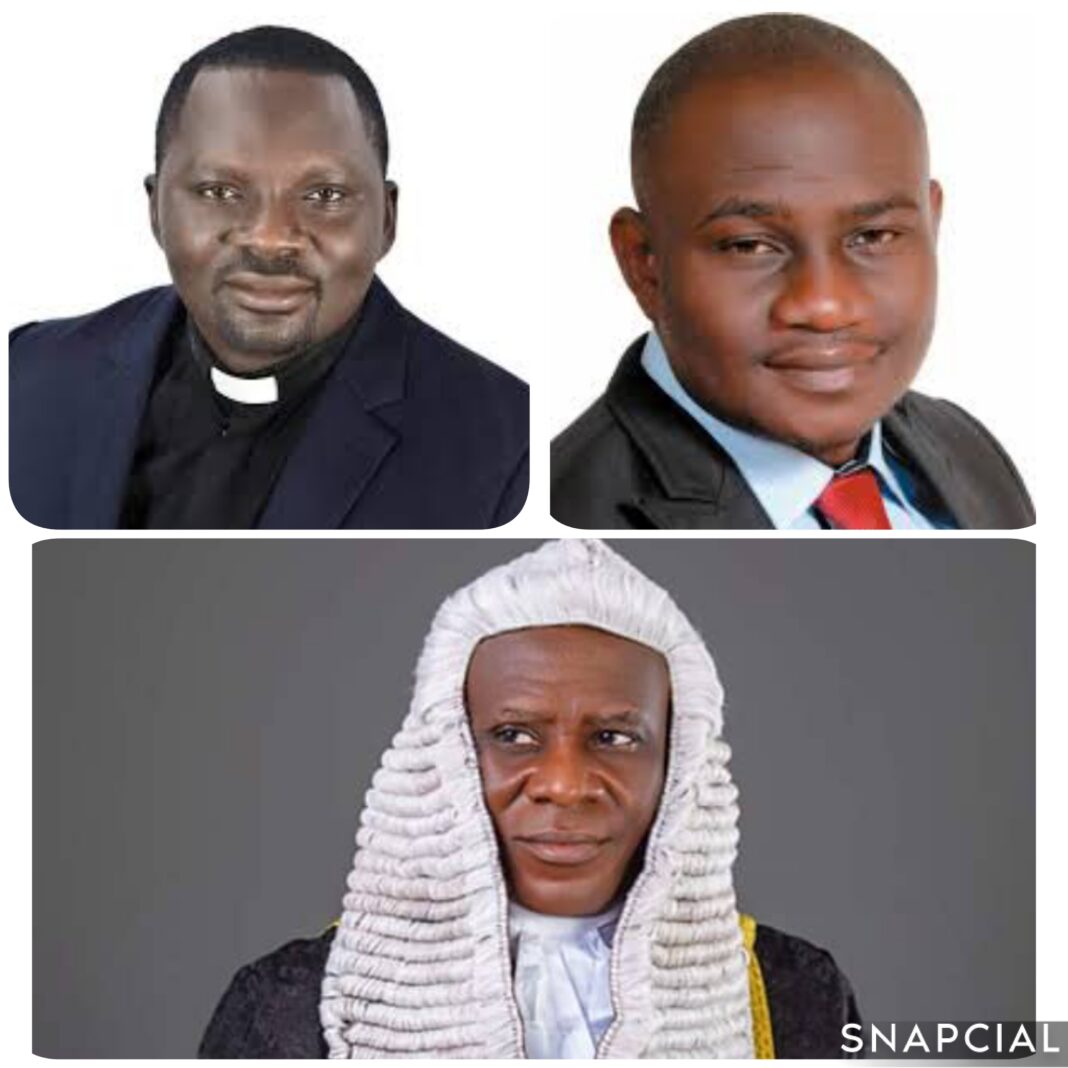Accountability Demands Intensify as Nigeria’s Constituency Fund Mismanagement Comes to Light
Editorial By: Ochochi News – Magazine.
**Date: May 18, 2025**
In a fiery denunciation of the National Assembly’s handling of constituency funds, Comrade Daniel Onjeh, the 2023 All Progressives Congress (APC) Senatorial Candidate for Benue South, has urged Nigerians to shift their frustration away from President Bola Ahmed Tinubu and instead hold their elected representatives accountable for the alarming mismanagement of Constituency Development Project (CDP) funds. His remarks in Sunday 18th Vanguard Newspaper resonate against a backdrop of escalating economic hardship, with citizens feeling the pinch of misappropriated public resources.
Onjeh’s criticism gained momentum after revelations made by APC stalwart Chief Ayodele Asalu highlighted the staggering financial provisions allocated to lawmakers; each member of the House of Representatives has reportedly received at least ₦1 billion, while Senators are bestowed with a minimum of ₦2 billion annually for constituency projects. These figures paint a shocking picture of potential resource misallocation amid widespread poverty and infrastructural decay, raising questions about the effectiveness and transparency of government spending.
In another public declaration by Kunle Edun, SAN, chairman of the Nigeria Bar Association (NBA) Citizens’ Engagement Committee, a clarion call was made for Nigerian citizens to demand accountability from their representatives concerning how the constituency funds earmarked for development projects are being utilized. Edun emphasized the critical importance of citizen engagement and vigilance over the funds, resources that rightfully belong to the public and should serve their developmental needs, rather than personal or political agendas of elected officials.
The Committee’s stance aligns with constant demands voiced by community activists, including Comrade Paul Edoh since 2017 till date, a well regarded advocate for community development in Apa and Agatu federal constituency of Benue State. He highlighted the pressing need for transparency from lawmakers, particularly focusing attention on the member representing the good people of Apa-Agatu Federal Constituency in the 10th Assembly, Chief Hon. Past. Ojema Ojema. Edoh Jr, urged Ojema to publish detailed records of how the allocated funds have been spent, including Zonal Intervention Funds since 2023, to ensure public trust and confidence in the democratic process.
In a related but distinct development, Honourable Akingbaso, the representative for Idanre/Ifedore Federal Constituency, took to social media to address constituents’ concerns about the raised constituency fund allocation. Previously, representatives received ₦400 million for constituency projects, but under the Tinubu administration, this amount has ballooned to ₦1 billion per representative and ₦2 billion for Senators. Akingbaso clarified that, while these allocations are officially approved, they are routed through relevant Ministries, Departments, and Agencies (MDAs) for project execution.
The turbulence surrounding these funding revelations can be viewed as a watershed moment for Nigerian democracy. For far too long, accountability has been relegated to mere rhetoric, but the recent outbursts from politicians and legal experts alike signal a growing readiness among the populace to demand transparency and judicious use of their resources. The revelations have undoubtedly opened the eyes of many citizens, illustrating the potential for change when collective voices advocate for better governance.
As these calls for accountability gain airtime, it becomes imperative for the Nigerian public to engage closely with their representatives, ensuring that the substantial resources allocated for constituency development translate into tangible benefits for their communities. Nigerians are urged not to remain passive observers but to actively participate in the oversight of their elected officials.
To this end, the situation encapsulates the pressing need for a more responsible and transparent political culture within Nigeria. With pressure mounting on lawmakers to account for public funds amid rising economic challenges, it remains to be seen whether this momentum for accountability will lead to meaningful reforms and an improvement in the lives of ordinary Nigerians. The path forward demands vigilance, civic engagement, and a steadfast commitment to demanding accountability from those in power.
